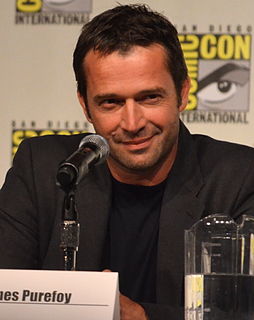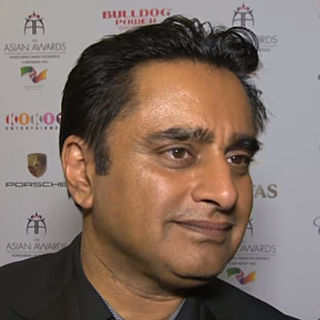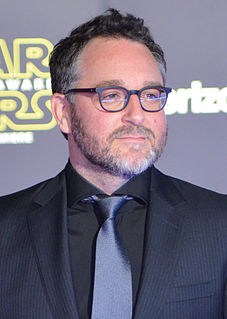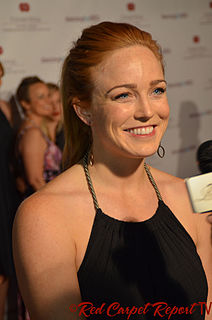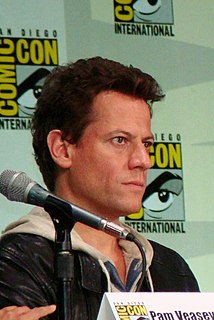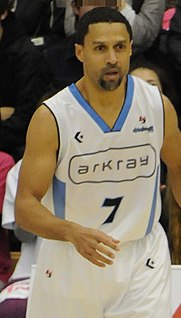A Quote by Dwayne McDuffie
If you do a black character or a female character or an Asian character, then they aren't just that character. They represent that race or that sex, and they can't be interesting because everything they do has to represent an entire block of people. You know, Superman isn't all white people and neither is Lex Luthor. We knew we had to present a range of characters within each ethnic group, which means that we couldn't do just one book. We had to do a series of books and we had to present a view of the world that's wider than the world we've seen before.
Quote Topics
Related Quotes
I sense a kind of fear of writing black or Asian characters from non-ethnic writers, who perhaps feel that they don't know the culture and therefore can't write about it. By and large, if there's an Asian character, I might get a call. But if the character is called 'Philip,' the chances are I won't.
It makes it easier, if you can't do an American accent. I don't know. It's different. I played a character in Never Let Me Go where the script for my character was very sparse, and I enjoyed it. With Never Let Me Go, I had a whole book written from my character's point of view, so I always knew where I was. But, with Ryan [Gosling], it was just easy. He's such a brilliant actor and he is so prepared. He doesn't have to warm himself up to be in a scene. He's just in it. It draws you in, in a way.
It's really an organic sort of process. You start off with the character on the page. You fall in love with that character and you have to represent that character well and I think it's just an evolution there. Using the accent and speaking the lines with the accent in fact opens the door to who the character really is.
I tend to like strong female characters. It just interests me dramatically. A strong male character isn't interesting because it has been done and it's so cliched. A weak male character is interesting: somebody else hasn't done it a hundred times. A strong female character is still interesting to me because it hasn't been done all that much, finding the balance of femininity and strength. [From a 1986 Fangoria interview]
I couldn't stand for a flag that represented tyranny and oppression. Not just from a domestic perspective but from a global one. It's supposed to represent equality and justice for all, and I believe the flag is a symbol that's supposed to represent the character of the people. When that character is not in line with what I believe in, then I'm opposed to that symbol. I couldn't see myself standing and still can't.
I've been lucky that even when I was younger, just because of my look or whatever, I was afforded the opportunity or called on to try. 'Can you do this Hispanic character?' 'Can you do this Italian character?' 'Can you do this Jewish-American character?' I just had to develop a facility for their accents.
When you are writing, you have to love all your characters. If you're writing something from a minor character's point of view, you really need to stop and say the purpose of this character isn't to be somebody's sidekick or to come in and put the horse in the stable. The purpose of this character is you're getting a little window into that character's life and that character's day. You have to write them as if they're not a minor character, because they do have their own things going on.

